Tesco's arrival means times are getting tougher for the Isle of Man's retailers. But the giant is not getting it all its own way says Ed Bedington
Dismiss the Isle of Man as a quiet backwater at your peril. On top of overcoming the daily complexities of island living, the Manx retail scene is heated, competitive, and ever more adept at giving the consumer what they want.
It's hardly surprising. This modest little island is a modern, high-tech independent nation with a strong and thriving economy. A self-governing parliamentary democracy outside of the EU, the economy has proved attractive to many businesses UK retailers are no exception.
Tesco opened a store in the capital Douglas just under a year ago bringing the number of supermarkets on the island to eight. It rubs alongside two Safeway stores, five Shoprites, a Marks & Spencer foodhall, eight Co-op c-stores and a handful of independents and Spars, all serving just 72,000 people.
Few doubted Tesco would make serious waves in the island's retail scene. And last week the island's oldest and largest supermarket chain Shoprite announced poor results a £2.66m pre-tax loss to the end of 2000, with sales down 1.2% from £57.8m to £56.9m.
Shoprite has been on the island since 1972 and over the last two years has embarked on a radical and expensive refurbishment of stores, the biggest of which is its 40,000sq ft flagship in Douglas.
But increased competition on the island is taking a greater than expected toll on the chain and the company honestly admits its annual results were "very disappointing".
Perhaps Shoprite jumped too quickly into a costly revamp, islanders suggest. Rather than giving in to a knee-jerk reaction to Tesco's forewarned arrival, could it have done better sitting tight and formulating a more considered strategy in line with circumstances on the ground? Shoprite chairman Deryck Nicholson is adamant it chose the right path: "We are very pro-active it's either move or die."
Nicholson also points out the chain is constantly evolving this is the fourth time it has re-invented itself. And, he argues, Tesco hasn't brought anything new to the island. "We were already offering everything they do," he says.
In recent years Shoprite has introduced many US ideas including dual pricing using the company's loyalty card ClubMANN to offer lower prices to members. "The card was a huge success with over 90% uptake overnight. It currently delivers over £3m per annum in savings to customers and is an invaluable source of information on our customers' shopping habits," Nicholson says.
The company has also developed two separate stores Deal Zone, offering a range of non-food products, and Winerite, an off-licence providing a one-stop shop for party occasions.
In the midst of such business refocusing and development, Nicholson is convinced the future is rosy. He says the new strategy of capital investment will allow the group to meet the challenge of increased competition and retain the loyalty of customers.
But it has not all been plain sailing as far as the revamp goes. A new fresh marketplace pavilion failed to go down well with shoppers in trials at the Douglas store. The design was open-plan with the removal of aisles allowing shoppers to move freely among a wide range of fresh produce. However, the layout did not appeal to disorientated customers and Shoprite was forced to reimpose structure in the form of conventional aisles. "The design was perhaps a bit too far ahead, a bit too radical for the moment," Nicholson concedes.
But he is undeterred from his grand plan for the business and is nothing if not bullish about the future. "I would like to buy the stores of our competitors because I think we could do a better job with them."
If not quite so bullish, John Horsthuis, of family run grocer and fresh supplier Robinson's, is relieved that Tesco has not caused the industry fallout he and others feared. "The worst case scenario I had worked out was that I would lose around 20% of my business, but fortunately that has not proved to be the case."
Instead, Robinson's is consolidating operations shutting a number of shops and has opened concessions in all Shoprite stores. It has also moved into new areas such as ready meals, employing some of the island's top chefs to create premium products.
For Horsthuis, Tesco has been the catalyst for a series of performance driving, and overdue, changes. He takes a philosphical view: "We've been living with companies like Marks and Spencer and Safeway for some time. Tesco is just a little more competition."
Both Co-op and Safeway agree that Tesco has not had the anticipated impact, and believe the chain has merely taken a small piece of trade from everyone. Co-op is about to roll out its successful Welcome format across the island and area manager Peter Whittaker says its target audience is different to Tesco and Shoprite. "Once upon a time we tried to be all things to all men, but these days we are concentrating on convenience. My aim is simply to be the best convenience operator on the island."
Safeway meanwhile is forging ahead with an island roll-out of its new UK store format. Area manager Mark Lilley says plans are underway for a major renovation of the company's two stores with an emphasis on fresh food.
Perhaps the investment will put an end to rumours that the company is looking to pull out of the Isle of Man. Lilley insists such talk is without foundation. "We would have renovated before now, but that would have meant the stores having the old 90s design. Now we are in a position to give them the most up-to-date look available."
Chris Collins, Safeway store manager at Douglas, says his store has suffered slightly from Tesco's free parking, but insists that the majority of his customers remain loyal to Safeway. Both Collins and his colleague Ben Sutherlands, manager of the Ramsey store, say Tesco has to deal with the same problems all the island's retailers face staffing and importation make island retailing a complicated affair but they claim experience gives Safeway the edge.
Unemployment on the island stands at less than 1%, with only around 200 people out of work. The limited workforce and a large financial sector offering lucrative salaries means that retailers, from the big supermarkets down to small c-stores, find it difficult to attract and retain staff. With an average of 2,000 job vacancies at any one time, filling jobs is a constant battle for business on the island. A lot of poaching goes on and retail staff can generally walk out of one job straight into another, which means service suffers.
Shoprite has adopted drastic measures to tackle the problem, reviewing pay three times in the last year. "Holding on to staff is a problem for everyone but we make sure our people are well looked after and we have a loyal base of staff. Being a family firm, the door is always open," says Nicholson.
Another complexity for incumbents and new arrivals is distribution. With only one ferry company operating a service, shipping costs are high. And with boats dependent on the weather, maintaining supplies can be a fine art. Shoprite maintains an advantage over its competitors with the operation of warehouse facilities on the island and in Liverpool. Safeway, without warehousing on the island, bears the full blow of shipping costs.
There is no doubt the added difficulties and cost of shipping affects store profitability and means firms have to operate smarter. "You have to be a lot sharper on things like waste management, and you have to make sure every truck shipped over is full, because they cost the same whether they're full or empty," Sutherlands says. Safeway has started backhauling local produce and exporting to Safeway stores on the mainland, making the most out of each run.
Grocery retailing on the Isle of Man is tougher than ever. Yet in contrast to the UK price war, all the chains, including Tesco, insist they are not competing on price. For many Manx consumers, high incomes and low taxes make price less of a driver than in other markets. Instead, the real competitive edge comes with range, availability and convenience. And all the players are pushing back the frontiers to get an extra slice of the Manx purse.
The absence of a cut-throat price-slashing culture also makes for a more civilised island take on store wars. Tesco is preparing to celebrate its first, and what manager Paul Gallagher labels extremely smooth and successful year. It has achieved a lot, from opening its 27,000sq ft store to rolling out Tesco.com, its home shopping service.
"We're still trying to develop our own name on the island and we're focusing on what the customer wants. I would like to expand our non-food offering as there is real demand for it. The key things we will be concentrating on are availability, customer service and value for money," he says.
At the moment Tesco is still finding its feet, but expansion may be on the cards. Neither can a move on prices be ruled out in the future. "I'd like to think that we've revitalised the retail scene since we arrived on the island," Gallagher says. That's not the sort of thing Adrian Christian who operates the Wessex Group chain of four c-stores wants to hear. He alone freely admits that his firm has felt the pinch from Tesco.
He says convenience is a big driving factor on the Isle of Man, and Tesco's positioning, along with free car parking has made supermarket shopping a lot easier. "I've seen some shoppers in Tesco just buying food for one meal. I've never seen that in a supermarket here before."
Within three years Christian has seen his growth fall from an annual increase of 18%, to minus 3% last year. It's not good news but he's fighting back and aims to be the first store on the island to offer 24 hour opening. He is also talking about a revamp to attract customers back. The stakes are high, and competing and succeeding in the new retail environment doesn't come cheap. Christian is preparing his counter-offensive: "I think everyone is going to have to raise their game."
{{FEAT. COVER }}
Close menu
- Home
- Retail & Wholesale
-
Products & Suppliers
- Back to parent navigation item
- Products & Suppliers
-
Product Categories:
- Back to parent navigation item
- Product Categories:
- Alcoholic drinks
- Bakery
- Cereals & breakfast
- Cheese
- Chicken & poultry
- Chocolate
- Confectionery
- Crisps, nuts & snacks
- Dairy
- Fish
- Fresh produce
- Frozen
- Household
- Meat
- Own Label
- Sauces & condiments
- Seasonal
- Soft drinks
- Vaping
- Vegan & plant-based
- World foods
- Suppliers
- People
- Reports & Data
-
Topics A-Z
- Back to parent navigation item
- Topics A-Z
-
Popular topics:
- Back to parent navigation item
- Popular topics:
- Cost of living crisis
- Crime
- Deposit Return Schemes
- Finance
- Government & Regulation
- Health
- Inflation
- Loyalty
- Marketing
- Mergers & Acquisitions
- New Product Development
- Sourcing
- Supply chain
- Sustainability & environment
- Technology
- Ultra Processed Foods
- Vaping
- A-Z all topics
- Content by type:
- Events
- Ask iA (beta)
- Subscribe now
Sign in to comment on this article
Not logged in before? Register for FREE guest access today.
You will be able to:
- Read more stories
- Receive daily newsletters
- Comment on stories
Advert



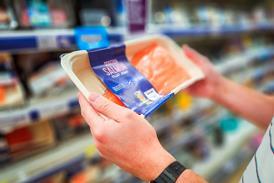
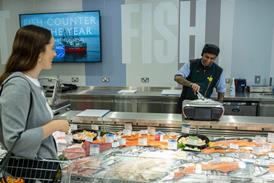





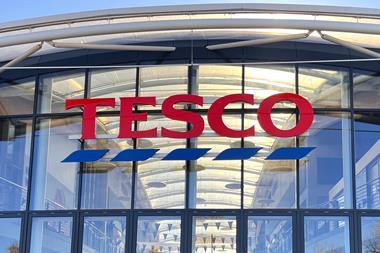


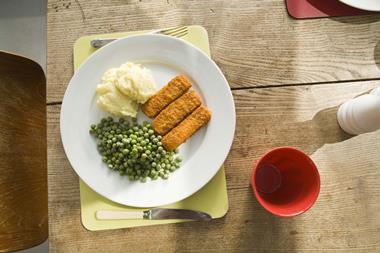
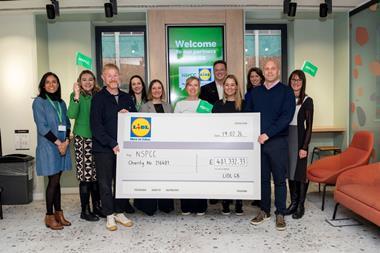

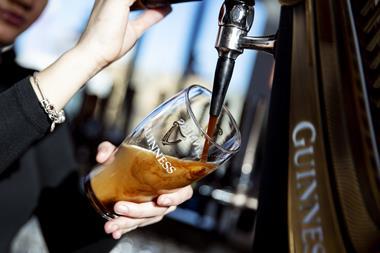

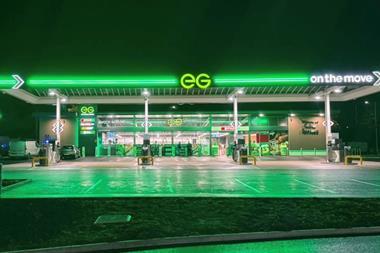
No comments yet